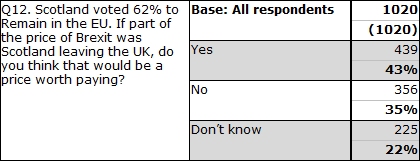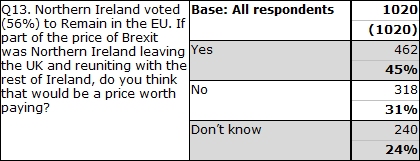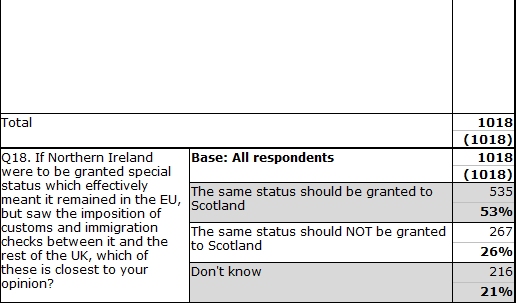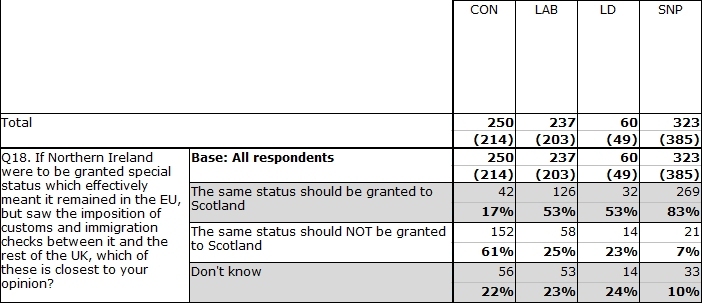United Kingdom
Related: About this forumMay secures 'legally binding changes' in Strasbourg to Brexit deal
The package negotiated by Theresa May and Jean-Claude Juncker is expected to be in three parts:
A joint interpretative instrument – a legal add-on to the withdrawal agreement. It will give legal force to a letter from Juncker and Donald Tusk, the presidents of the commission and council, given to May in January which stated the EU’s intention to negotiate an alternative to the backstop so it would not be triggered or get out of it as swiftly as possible, if it was.
A unilateral statement from the UK. That is likely to seek to explain the British position that, if the backstop was to become permanent and talks were going nowhere on an alternative, the UK would seek to exit the arrangement.
Additional language in the political declaration to emphasise the urgency on both sides to negotiate an alternative to the backstop, and flesh out what a technological fix would look like. It is hoped this will be enough to persuade the attorney general, Geoffrey Cox, to change his initial legal advice that the backstop could be in place indefinitely.
The problem: Very, very little of this is significantly new. The most substantive element is the joint interpretative instrument. But it falls well short of Cox’s demands over the last week for what amounted to a unilateral exit mechanism from the backstop...
https://www.theguardian.com/politics/live/2019/mar/11/brexit-latest-news-vote-tuesday-tories-suspect-may-could-pull-tuesdays-key-vote-after-talks-fail-to-deliver-progress-politics-live
Soph0571
(9,685 posts)Then...who knows? I don't think even the PM knows.
muriel_volestrangler
(105,625 posts)because the backstop doesn't have to happen - if their sacred Malthouse Compromise can work, then they can put it forward after March 29th as the solution which avoids a hard border. But I think they rejected the Draft because they don't themselves believe the Malthouse thing would actually work in practice, and they can't have that exposed when it would mean a customs union instead. So they're insisting on the alternative to Malthouse being 'no deal', because they're OK with that, don't care about a hard border, and want to be anti-EU above all.
Judging by some of the comments at the Guardian live page, she'll peel a few Tories off, but I'd guess not enough, if all the opposition parties vote against this. I think the Commons will then vote to refuse 'no deal', because none of the opposition want 'no deal', and neither do a significant number of Tory Remainers. And I suppose an "extend Article 50" vote will win on the same grounds. But what anyone can do with extra time, god knows (I think the EU would accept extra time, because it's the only way of avoiding 'no deal' after that).
Ghost Dog
(16,881 posts)one possible eventual consequence of a bad or non-deal?
Denzil_DC
(8,942 posts)It focused on 1020 voters in England. Its findings on Scotland:

On Ireland:

On Gibraltar:

https://wingsoverscotland.com/nations-overboard/
Scottish attitudes toward the question of the Irish backstop and implications for Scotland having a hard border showed overall:

Here's the breakdown by party:

https://wingsoverscotland.com/the-divided-kingdom/
The results are from polls sponsored by pro-Scottish independence blog Wings Over Scotland. Wings runs Panelbase polls on a number of issues from time to time. The results are considered valid enough to be cited by mainstream media when it suits them. But it's just one poll, nearly a year ago.
Ghost Dog
(16,881 posts)Have residents in Scotland also been polled as to whether or not they'd choose, if given a choice, to remain under the (unified) British Crown if leaving the UK?
Denzil_DC
(8,942 posts)However, during the 2014 Scottish Independence Referendum, Nicola Sturgeon's line was that the Queen would remain as head of state (possibly similar to the situation with countries such as Canada and Australia, though details such as whether there'd be a governor generalship were scant as the issue wasn't really debated).
I suspect it wasn't a fight worth picking given the range of other controversial issues at the time.
I think attitudes in Scotland (indeed, in the UK as a whole, and perhaps the Commonwealth) toward the royal family and the role of the Crown will change a good deal once Elizabeth is no longer queen. And after independence, no Scottish government would be bound by anything that wasn't in a new Scottish constitution anyway, and even if it was in the original version, it could later be amended (hopefully not by referendum!).
T_i_B
(14,882 posts)MPs voted down the prime minister's deal by 149 - a smaller margin than when they rejected it in January.
Mrs May said MPs will now get a vote on whether the UK should leave the EU without a deal and, if that fails, on whether Brexit should be delayed. She said Tory MPs will get a free vote on a no-deal Brexit.
That means they can vote with their conscience rather than following the orders of party managers - an unusual move for a vote on a major policy, with Labour saying it showed she had "given up any pretence of leading the country".
T_i_B
(14,882 posts)Theresa May said there was a "clear majority" against a no-deal Brexit but the "legal default" was that the UK would leave without a deal on 29 March if no deal is reached.
MPs will now get a vote on delaying Brexit, said the prime minister.
That vote will take place on Thursday, and if it is passed - and the EU agrees to it - the UK will not leave the EU as planned on 29 March.
There could be a short extension - or a much longer one - depending on whether MPs backed her withdrawal deal "in the coming days", said the prime minister.